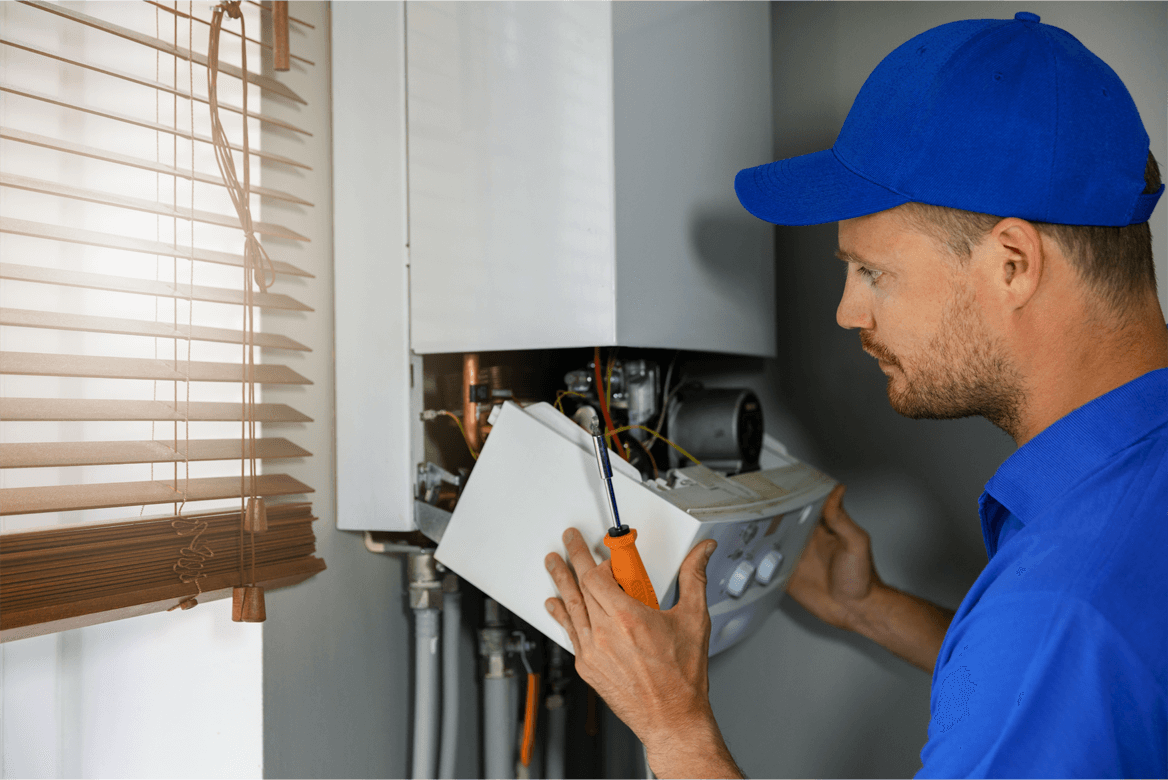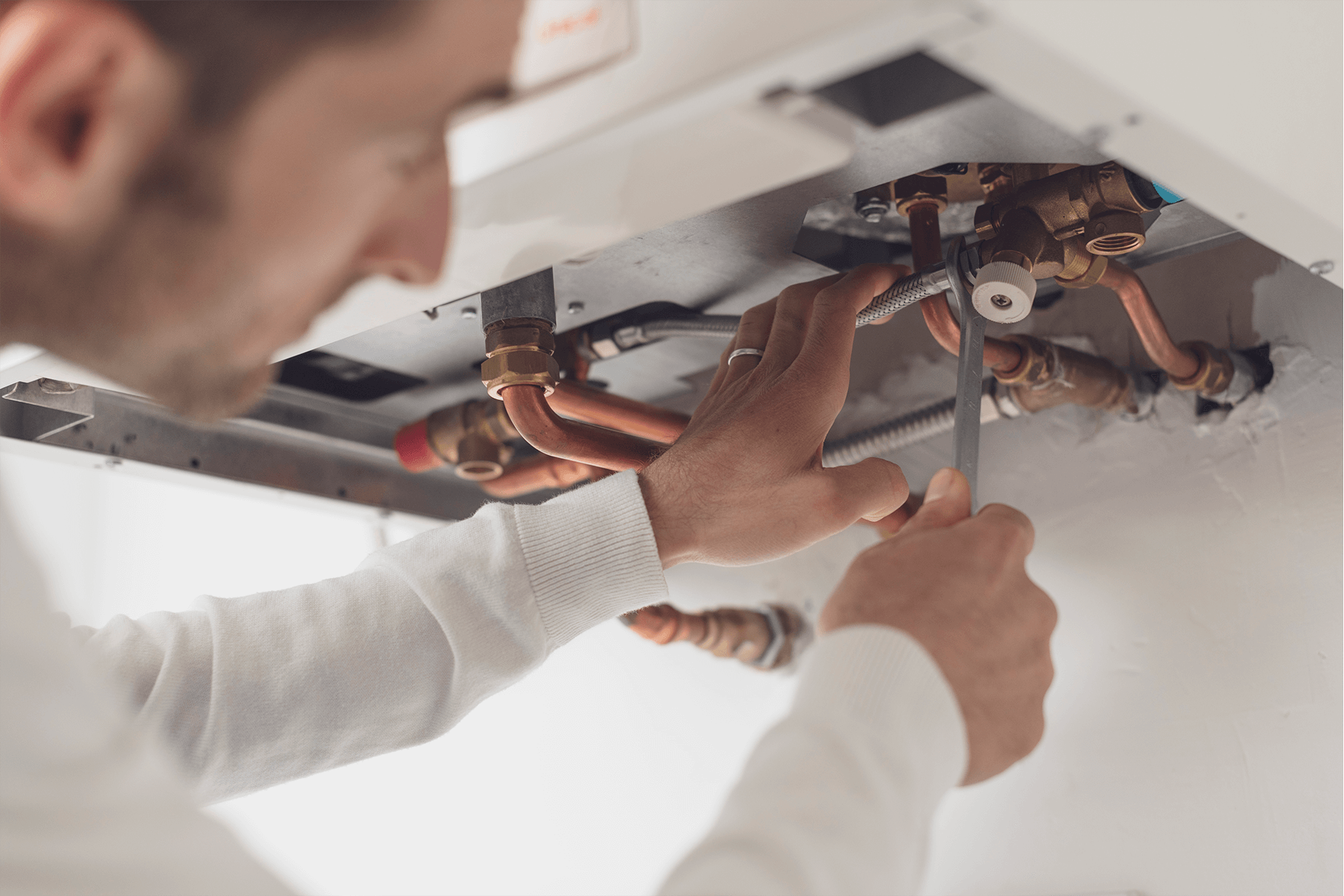Boilers are the backbone of any home. They provide heat and hot water throughout your day and night we know fixing a boiler can be tricky when you’re not an expert.
So understanding how to troubleshoot boiler problems is crucial for keeping your home warm and functional during the cold winter months.

How to Troubleshoot Boiler Problems
Boilers are the backbone of any home. They provide heat and hot water throughout your day and night we know fixing a boiler can be tricky when you’re not an expert. So understanding how to troubleshoot boiler problems is crucial for keeping your home warm and functional during the cold winter months.
What are the signs and symptoms of boiler problems?
If your boiler is having problems, there are a few different signs and symptoms that you can look out for. One of the most common signs that something is wrong with your boiler is if it starts making strange noises.
Boilers usually operate relatively quietly, so any unusual sounds from yours could indicate something is wrong.
Another sign that your boiler may be in need of repair is if it doesn’t seem to be heating up your home as well as it used to.
If you notice that your boiler isn’t providing as much heat as it typically does, or if it takes longer than usual for your home to reach the desired temperature, there could be an issue with your boiler.
Additionally, if you notice any water leaks around your boiler or steam coming from the unit, this could also signal that there is a problem. If you experience any of these issues with your boiler, it’s important to contact a professional for help troubleshooting the problem.
What is involved in troubleshooting a boiler problem?
If your boiler is giving you trouble, there are a few things you can do to troubleshoot the problem yourself before calling a professional.
First, check the pilot light to make sure it is lit. If it is not, follow the instructions in your owner’s manual to relight it. If the pilot light will not stay lit, there may be a problem with the thermocouple or gas valve and you will need to call a professional.
Next, check the water level in the boiler. If it is low, add more water and check the pressure gauge to see if the pressure has dropped below 12 psi. If it has, you will need to bleed the radiator(s). Instructions for doing this can also be found in your owner’s manual.
If your boiler is still not working properly after following these steps, please call a qualified heating contractor or plumber for further assistance.
How to prevent boiler problems
If you want to prevent boiler problems, there are a few things you can do. First, have your boiler serviced regularly by a qualified technician. This will help ensure that your boiler is operating correctly and efficiently.
Secondly, be sure to keep an eye on the pressure gauge and water level indicator. If either of these starts to fluctuate, it could be an indication of a problem.
Lastly, if you notice any unusual noises coming from your boiler, be sure to call a technician right away. By following these simple tips, you can help prevent boiler problems before they start.
How to fix common boiler problems
If you’re having boiler problems, it’s important to troubleshoot the issue as soon as possible. Boiler problems can range from minor issues that can be fixed easily, to major issues that require the help of a professional.
First, make sure that all the controls are set correctly. If they are, then check for any blockages in the pipes leading to and from your boiler. If you find any, clear them away.
One of the most common boiler problems is a loss of pressure. If your boiler has lost pressure, you’ll need to bleed the radiators to get rid of any air that’s trapped in the system.
To do this, open the bleed valve on each radiator until water starts to come out. Once all the radiators have been bled, check the pressure gauge on your boiler. If it’s still reading low, you may need to add more water to the system.
Another common problem is a noisy boiler. If your boiler is making strange noises, it could be due to low water pressure or air in the system. You can try bleeding the radiators or adding more water to the system to see if that fixes the problem. If not, you may need to call a professional for help.
Conclusion
Boilers are an essential part of many homes, so it’s important to know how to take care of them. With a little bit of knowledge and effort, you can keep your boiler running smoothly for years to come.
If you’re not sure how to troubleshoot your boiler or are uncertain about anything, it’s always best to contact professional help. We here at ROMA Heating Services are experts in heating and plumbing services.
We have the experience and expertise to deal with any problem you might have and can get your boiler up and running again in no time. So if you’re ever in doubt, don’t hesitate to contact us!
